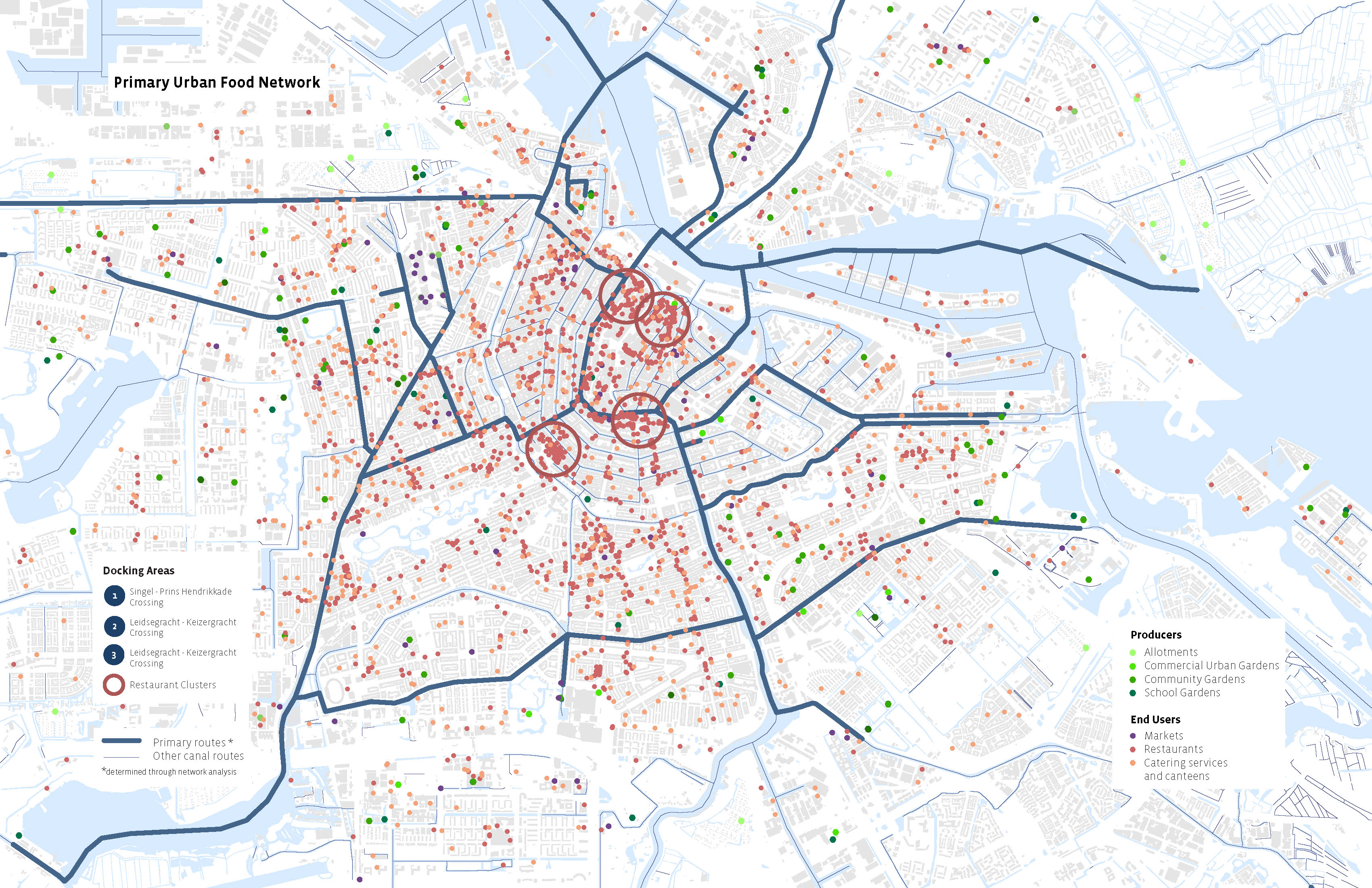Urban Growers: Infrastructure of Food
Amsterdam, Netherlands
2017-05

With over 1,000 kilometers of canals, 1,500 bridges and a long-standing focus on urban innovation, the city of Amsterdam is an ideal place to test new, water-based mobility solutions to provide insights for many coastal cities.
The ‘roboat’ project — a research collaboration between MIT’s Senseable City Lab and AMS, the Amsterdam Institute for Advanced Metropolitan Solutions — seeks to design and test the world's first fleet of autonomous boats in the city of Amsterdam.
As urban food systems are becoming more globalized and consolidated, increasingly centralized networks involving fewer individual actors aresupplying a growing proportion of the world’s food. Using geo-tagged database of food providers (farms, allotment gardens, urban farms, wholesale centers) and users (restaurants, catering services, markets), this research intends to show how the canals of Amsterdam can become the locus of a food network to connect local and regional growers to the city center.
1. Network Analysis 2. Visualizing the 2040 Structural Plan for Amsterdam to connect the city to the hinterlands & reuse the waterfront.
As urban food systems are becoming more globalized and consolidated, increasingly centralized networks involving fewer individual actors aresupplying a growing proportion of the world’s food. Using geo-tagged database of food providers (farms, allotment gardens, urban farms, wholesale centers) and users (restaurants, catering services, markets), this research intends to show how the canals of Amsterdam can become the locus of a food network to connect local and regional growers to the city center.
1. Network Analysis 2. Visualizing the 2040 Structural Plan for Amsterdam to connect the city to the hinterlands & reuse the waterfront.